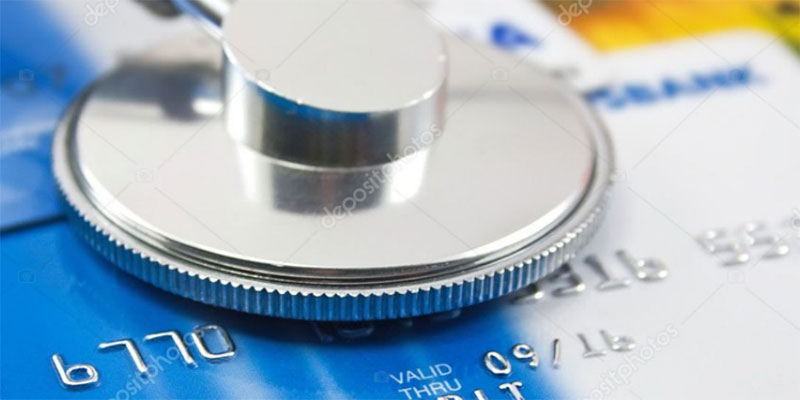A medical credit card might be a safety net when you require medical care that you cannot afford or that is not covered by insurance or Medicare. Your financial safety net could quickly unravel if you need to learn how to use it.
Medical and veterinary offices can obtain credit cards specifically for medical expenses. There's a good chance you've seen applications for dental and vision care credit cards from issuers like CareCredit and Wells Fargo Health Advantage at your local dentist's or optician's front desk. The card application process and approval take place at the same location.
Positive effects on both healthcare practitioners and their patients
When used properly, medical credit cards can help both patients and doctors.
The cards facilitate prompt access to care for patients and reduce administrative burdens for medical professionals. Credit card companies take on the risk of nonpayment from cardholders, relieving medical facilities of the burdens of financing and debt collection.
Patients can afford therapy even if they have a limited budget by making small monthly payments on a high bill, but only if they know how these cards function.
Lack of interest could be a problem.

Consider one of the most popular types of medical credit cards, CareCredit. The maximum credit available Depends on the provider; no interest will be added to your balance if you pay off your purchase in full before the end of the promotional period. You charge $1,000, and the promotional duration is six months. You could pay off your loan for around $167 monthly in that time frame. That's considerably more manageable than the full $1,000 for many folks.
The delay in medical credit cards
Promotional periods on medical credit cards typically involve deferred interest rather than the 0% APR offered by most credit card companies. As soon as you make a transaction, interest charges will accrue. You won't be charged any interest if you pay in full during the promotional time. However, all that back-dated interest becomes due and payable if you still owe money at the end of the promotional term. The APR for a home loan is 26.99%.
Throughout The Promotional Period

When the promotional period ends, and the consumer still needs to pay off their balance in full, all of the interest accruing during that time will be added to their bill in the seventh month. Though they have paid $216 toward their debt, their original $1,200 balance has been reduced by only $64. It would take the consumer eight years to pay off the debt at the minimum payment rate, and they would pay more in interest ($1,493) than they borrowed.
So, how do you proceed?
Only go running to a medical credit card application when you realise you can't pay for a procedure out of pocket. Get the care you need and avoid paying exorbitant interest rates by inquiring about the possibility of setting up a direct payment plan with your provider.
If you decide to use a credit card for medical expenses, set up a repayment schedule as soon as possible. Keep yourself on track by setting a reminder in your calendar several weeks before the conclusion of the promotional period. A better option is to set up automated payments to guarantee that the debt is paid off before the conclusion of the introductory period. That's sound advice for making the most of 0% APR offers on everything from healthcare credit cards to in-store financing for big-ticket items like sofas.
Medical Credit Card Terms
Ask the provider's staff to explain the medical credit card's terms and conditions if you need help understanding them. Those who are part of and stand to gain from this form of funding should be familiar with it. If the terms don't make sense to you, ask the issuer for clarification before you agree to open an account with them.
Regular credit cards with introductory 0% interest rates are another option for people with excellent credit. Purchases made with several cards are eligible for introductory 0% APR for a year or longer, with no grace period. Compared to medical credit card rates, the APR for these cards is typically lower even after the introductory 0% period finishes. Rather than utilising a medical credit card, which typically has high-interest rates, a 0% APR credit card could be a better option if you anticipate needing expensive medical or veterinary operations in the future.




